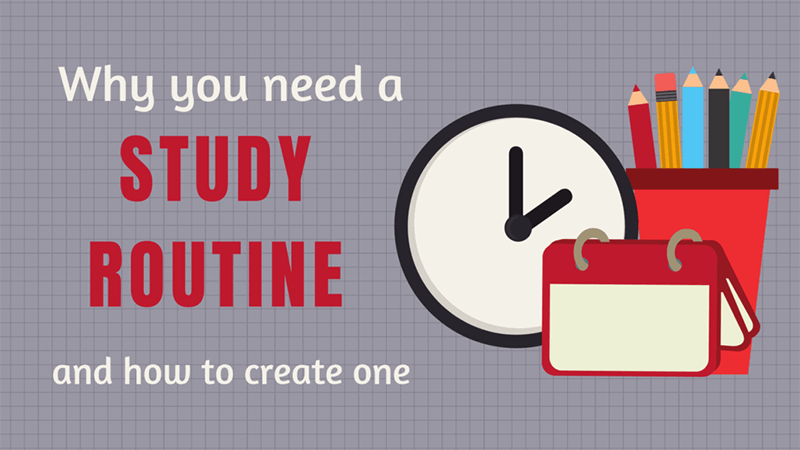Routine IELTS Speaking Part 1 một trong những từ khóa phổ biến đối với người ôn thi IELTS. Là chủ đề xuất hiện nhiều trong các bài thi Speaking. Song, để đạt được điểm tuyệt đối với đề tài này không phải ai cũng có thể làm được. Để bạn có thể “hiểu” và “speaking” tốt hơn trong chủ đề này. Bài viết hôm nay, Aten English sẽ mang đến những mẫu câu trả lời hay cho bạn tham khảo nhé!

Chủ đề IELTS Speaking part 1 – Daily routine
Routine IELTS Speaking Part 1 là một trong những chủ đề quen thuộc mà các thí sinh thi IELTS có thể gặp phải. Để đạt điểm cao hãy chuẩn bị kĩ những cấu trúc và từ vựng mạch lạc.
What is your daily routine?
I’m not an early bird but I always try my best to get up as early as possible. So that I can have more time to do everything I like. I start my day with a 30-minute exercise. Then I go to work at 8 am and come back home at 5 pm. I often end my day at 12 pm by putting my mind at ease. However, this schedule is not fixed. It depends on the amount of the duties I have.
- An early bird (n): người dậy sớm
- Try one’s best (v): cố gắng hết sức
- Put my mind at ease (v): thư giãn
- Depend on (v): phụ thuộc
Have you ever changed your routine?
Yes, I have. I used to work and study at night as I found it easier to concentrate, the silence at night assists me in focusing on my work. However, since I had office work in the morning. I’ve learnt to get used to working and studying during the day. For the first time, I had difficulties concentrating on working. But now, It’s not what I’m comfortable doing, but it’s not too bad to keep up with it.
- Assist in (v): hỗ trợ
- Get used to (v): quen với
- Concentrate on (v): tập trung
- Keep up with (v): theo kịp
What’s the difference in routine between you and your teenage times?
I can definitely say that my life now and then are very different. You know, when I was a teenager, I had plenty of free time to follow my interests like watching movies or listening to music in addition to concentrating on my studies. On the other hand, my schedule and time management have tightened up now. I haven’t had much free time since I graduated from college and started working as an English teacher because I’m so busy at work.
- Follow sb’s interests: Theo đuổi sở thích
- Concentrate on (v): Tập trung
- Tighten up (v): Thắt chặt
Tham khảo: Tổng hợp bài mẫu nói về chủ đề sport trong IELTS Speaking
Do you like to plan what you will do each day?
Yes, of course. Actually, I used to be a procrastinator, so I always had to cram for deadlines. My friend suggested that I make a to-do list for each day, and luckily, it works. Doing this is a way to put pressure on me and help me manage my time better.
- Cram for (v.): nhồi nhét nhiều việc cùng lúc
- To-do list (noun): danh sách những việc phải làm
- Put pressure on oneself (v.): gây áp lực
What is the busiest part of the day for you?
In addition to being my favorite time of day, the evening is also my busiest part. I’m struggling to finish all deadlines before the new day begins. I focus on doing a good job since there is no better motivator than the desire to go asleep.
- Struggle (v): ráng sức
- Desire (n): Mong muốn

Chủ đề IELTS Speaking part 1 – Study routine
Ngoài chủ đề Daily Routine thì với Topic này đề thi cũng có thể hỏi về khía cạnh Study Routine. Để đạt được tối đa số điểm ở những câu hỏi dễ trong chủ đề này, bạn cần vận dụng khéo léo cả từ vựng và ngữ pháp.
What is your daily study routine?
I’m not the type of person who crams for the exam right the night before so I divide the work into small sections and get them done each day. Therefore I won’t be under the pressure of studying. For example, I’ll usually focus on what I study for 25 minutes straight, then take a five-minute break and then get back to studying. This is a technique called Pomodoro to help you concentrate and study more effectively.
- Cram for the exam (v): Học nhồi gấp rút cho kỳ thi
- Be under the pressure (v): chịu áp lực
Do you think it is important to have a daily routine?
Yes. Having a good daily routine will enable you to plan your activities wisely. Without a daily schedule, people frequently act impulsively, which can waste time and decrease productivity. I believe developing a regular regimen will be more beneficial for individuals who lack organization.
- Enable sb to V: Cho phép ai làm gì
- Impulsive (a): không cẩn thận, bốc đồng
- A regular regimen (n): Chế độ hàng ngày
- Beneficial (a): Có lợi
How do you organize your time of study?
To avoid putting pressure on myself, I tend to learn little by little every day. Moreover, I have a plan which is the most important so I can know what I should do first. When I have a great deal of energy, I immediately sit at the desk to push up study efficiency.
- Put pressure on oneself (v): gây áp lực
- Little by little: từ ít một
- A great deal of (adv): nhiều (dùng với danh từ không đếm được)
- Push up (v): đẩy mạnh
Why do you think some people don’t plan their day in advance?
Some people resist making an advance plan for their day because they are concerned that it won’t work or won’t be good enough. While some people are adept at creating plans, they procrastinate when it comes to implementing the same.
- Resist (v): Tránh, kháng cự
- Adept at (adj): Tài giỏi, lão luyện
- Procrastinate (v): Trì hoãn
- Implement (v): tiến hành
Do you think it is possible to learn how to manage your time?
Sure! I schedule my daily chores and carry them out as planned, which aids in time management. Setting goals and judicious prioritization are two ways that can help them to learn how to manage their time. It’s better to set time constraints for each activity and finish them as soon as possible.
- Daily chores (n): Công việc hàng ngày
- Carry out (v): thực hiện, tiến hành
- Aid in (v): Giúp đỡ
- Judicious prioritization: Ưu tiên hợp lý
- Time constraints (n): Hạn chế thời gian

Trên đây là những câu trả lời hay chủ đề Routine IELTS Speaking Part 1 mọi người có thể tham khảo. Đừng quên đăng ký khóa luyện thi IELTS Speaking để được hướng dẫn lộ trình ôn luyện thi hiệu quả nhé!


